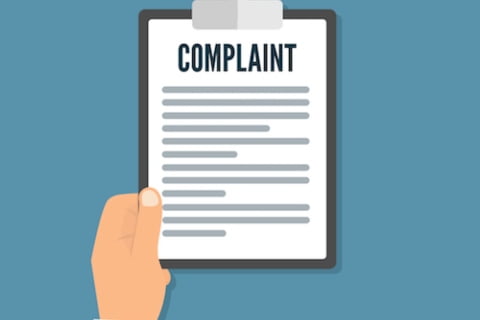By Jo Causon, CEO, The Institute of Customer Service
A review and summary of evidence given by CEO Jo Causon as a member of the expert witness panel investigating complaints with the Public Administration Select Committee. What is the Committee about? The Public Administration Select Committee (PASC) examines the quality and standards of administration within the Civil Service and scrutinises the reports of the Parliamentary and Health Service Ombudsman (PHSO). The Committee is currently conducting two inquiries into complaints handling. The first will look at complaints systems within government departments and agencies, including how effective these are at addressing complaints and how well they are used to improve the performance of services; the second will examine the performance of the PHSO and in addition will consider the relationship between the PHSO and Parliament.
The first inquiry, entitled ‘Complaints: do they make a difference? ‘will look at whether the current complaints system delivers fairness, redress and justice for people who complain, examining how departments and agencies use complaints as a source of information and challenge, to improve the delivery of public services. It will also look at how ministers and officials handle complaints made by MPs on behalf of their constituents. Institute CEO Jo Causon was invited to be a member of the expert witness panel during the complaints committee meeting on 4 June. Why was Jo invited to give evidence? The Institute of Customer Service’s research into handling complaints and regular comparison of customer service performance across sectors through the UK Customer Satisfaction Index (UKCSI) was identified as an important contribution to the enquiry.
In addition, Jo’s knowledge of customer service in combination with the research available from the Institute allowed the Committee to take a broad look at complaints handling including, the state of complaints across different business sectors, what good practice looks like and how complaints can be used to improve public services. Jo was joined on the witness panel by: Carol Brennan, Director, Consumer Insight Centre, Queen Margaret University, Edinburgh; Richard Simmons, Senior Lecturer in Social Policy, University of Stirling and Richard Lloyd, Executive Director, Which?. What was discussed?During a two hour discussion the four panellists answered a series of questions about customer service, complaints and complaints handling.
The wider subjects were broken down into key areas of discussion and questioning, which included: Problems are decreasing / complaints are increasing: Organisations need to be receptive to complaints in culture, not just process.
- Importance of first contact behaviour
- Timeliness of response
- High proportion of complaints cite staff attitude andcompetence
- How to report/measure complaints
Key points for the Institute The Committee raised a number of key points which we have highlighted as key to the debate
Problems are decreasing/complaints are increasing: The direct correlation between customer satisfaction and complaints was discussed as the first issue. Although the UK Customer Satisfaction Index (UKCSI) shows that overall satisfaction in the UK is improving and therefore the number of customers with problems has fallen, the propensity for people to complain if they have an issue is increasing. Jo Causon commented; “We are better informed and, importantly, we have more channels through which to give feedback. We are more likely to use social media. The fact that people are raising complaints is a good thing in terms of the knowledge and information that it shares. The issue is making sure that you do something with the information, and understand specifically what the complaint is about, taking time to really analyse the issues. When we look at the evidence and research, complaints will differ for particular sectors.
The panel did highlight areas of limitation for gathering feedback; misinterpretation of the language: what is a complaint? Is there a correct process to follow? Do customers know how to make a complaint or give feedback? Organisations need to be receptive to complaints in culture, not just process.
Although, clear, understandable processes are extremely important to the complaints procedure, the Institute also highlights the need for a culture which is accepting of complaints and feedback, ensuring it is evident at every level of the organisation. Jo adds: “Alignment must be achieved at all levels, from the very top, all the way through to middle management, and through to the front line. Making sure that there is clear communication about why customer service is important, and how we are actually handling that through to customers. It is about having a work force that is well engaged, is communicated to, understands its parameters and feels empowered to deliver.”
Importance of first contact behaviour. With the reference to Institute research into complaints Jo highlighted that the way that complaints are dealt with often affects the level of satisfaction experienced by a customer. For this reason this Institute advise that no matter which platform the complaint is received through; the service experienced through different channels should be consistent, with customers knowing what to expect from each when they give feedback.
Representatives receiving complaints must be empowered and be able to deliver a solution to the customer with support from the organisation. Delving further into Institute research, it is shown that speed is an issue when dealing with complaints. Timeliness of response: there is an indication that the first 24 hours are really important to how feedback is perceived in terms of whether somebody gets back to somebody. This is not necessarily about resolving something that could be a complex issue, but the initial contact is very important in terms of whether it is seen as a good experience.
When asked about how improvements could be made to ensure a good experience, Jo added; “we really need to look at that initial contact, at accountability and at what happens after that particular process, because if we can help the public feel that they had a good initial contact and their feedback is important, they are more likely to engage. Obviously, it is also important that the feedback does not stop there as you need to be able to process that and progress to a solution, but the first 24 hours are very important.”
High proportion of complaints cite staff attitude and competence, Institute research shows, 75% of complaints are related to staff competence, attitude or an organisation not keeping its promises. That is also true for the public sector. Jo commented: “In terms of what an organisation should be doing when managing feedback, in any sector, comes back to the creating the right values, leading from the top, making sure that we recruit in the light of the service that we are looking to deliver and creating people, with much higher emotional intelligence skills, through training and development. With each element in mind when recruiting and training staff the result will be a team which is able to focus on listening, engaging and seeing an issue as something we should be doing something about because we can improve it, all living by the same ethos: ‘The reason why we should be doing that is that it makes us more efficient, it makes us more effective and it is a better overall experience.”
How to report/measure complaints
It is important that reporting should remain visible and should be so at the most senior levels. In private sector organisations that do well, the equivalent is the boardroom. It is discussed at the highest levels and people refer to what is going on and what is being done.
If it is visible and it is being measured, there is a general chance that something is more likely to happen as a result. I would also say that sometimes we measure the wrong things, but that goes back to really understanding what it is that people require and where improvement is needed.




Comments (0)